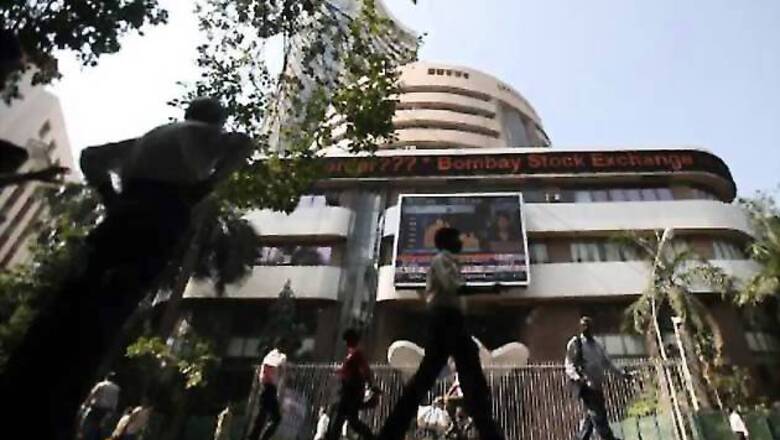
views
Mumbai: The market was prepared for one positive and one negative event on Monday; a fractured verdict in the Greece polls, and back home, a 25-basis point reduction each in repo rate and cash reserve ratio. Investors did get their one good and one bad news, but not in the way they were expecting. The pro-bailout New Democracy Party won the Greek elections, reducing changes of a Euro break-up, but the Reserve Bank of India sprang a nasty surprise by leaving benchmark rates unchanged.
Dejected bulls dumped the shares they had loaded up on in anticipation of the rate cuts, sending the Sensex crashing by 244 points. The index ended the day at 16,705.83, after touching a low of 16,636.09 during the day. The Nifty shed 74.80 points to close at 5,064.25.
The RBI cited two strong reasons for not cutting interest rates. One, high interest rate was not the only factor choking growth, and two, rate cuts at this stage would increase liquidity in the system and cause inflation to spiral out of control. Already, inflation based on consumer price index for May rose to 10.36 per cent from 10.26 per cent in April.
In addition, the RBI has made it clear that further rate cuts were unlikely until the government did its bit to contain inflation by curbing wasteful expenditure.
"Barring severe adverse global developments, RBI is expected to remain on hold for the remainder of the year," CLSA economist Rajeev Mallik wrote in his note to clients.
"Favourable monsoon rainfall and government’s corrective fiscal actions could offer some leeway for limited easing. However, we expect international crude oil prices to recover later in the year, which will prevent RBI from easing," the note said.
Shares from the banking and realty sectors fell the sharpest, as high interest rates hurt demand for loans and thereby for property. The BSE Banking index fell 3.16 per cent and the BSE Realty Index 2.78 per cent.
Shares of fast moving consumer goods companies too took a beating, on concerns over the delayed start to monsoon. Investors in these shares are all the more jittery because they are quoting at expensive valuations. If rainfall is below average, rural demand"a key growth engine for this sector�"could decline sharply, hurting earnings, and triggering a sell-off in these stocks.
Shares from the auto, healthcare, and oil and gas sectors fared slightly better than the rest, but mostly closed in the red.
Country's largest lender State Bank of India plunged 4.36 per cent while its rivals ICICI Bank and HDFC Bank were down 3.34 per cent and 2.71 per cent, respectively.
FMCG majors ITC and HUL went down 2 per cent and 0.91 per cent, respectively. Oil & gas producers Reliance Industries and ONGC fell 1 per cent each.
Engineering and construction major by sales Larsen & Toubro dropped 0.65 per cent and state-owned capital goods company BHEL lost 2 per cent.
Top software services exporter TCS slipped 1 per cent and steel company Sterlite Industries tumbled 4.34 per cent.
However, Tata Steel gained 1.3 per cent as company made open offer in group companies namely Tinplate and Tata Sponge Iron. Bajaj Auto rose nearly 1 per cent.
About 2.5 shares declined for every share advancing on the National Stock Exchange.
















Comments
0 comment